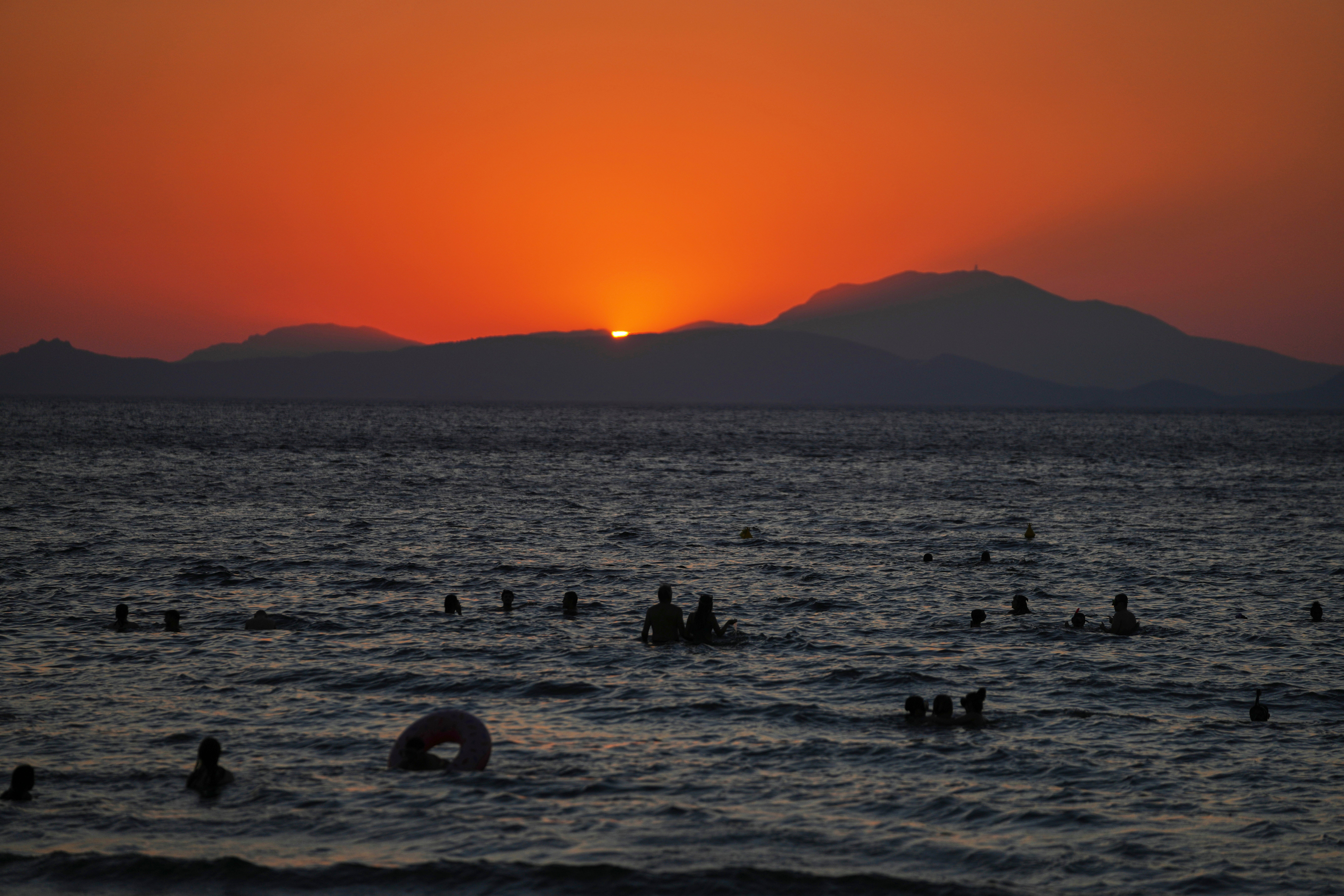A strong 5.2 magnitude earthquake struck near the Greek island of Evia, sending tremors across a wide area as far as the capital, Athens.
The earthquake occurred at 12.27am local time and took place about 5km (3.1 miles) northwest of the town of Nea Styra in Evia, according to the Institute of Geodynamics in Athens.
Tremors could be felt as far as Athens, about 50km (31 miles) from the earthquake epicentre, Reuters reported.
There were no reports of casualties or major damage, as seismologists assured the public there was “no reason for concern”.
“This is an area that, based on historical and instrumental data, does not usually generate stronger earthquakes,” Efthymios Lekkas, the head of Greece’s earthquake planning and protection authority, told the Greek state broadcaster ERT.
“We are monitoring the situation,” he added.
A map of Nea Styra:
Some residents on Greece’s second-largest island, a popular holiday destination, said the tremors were so strong that they spent the night outdoors out of precaution.
“The earthquake lasted a long time and we were very worried. It was the first time we felt such a strong quake in our area,” one resident in Nea Styra told ERT.
As the broadcaster’s political show, Off the Record, went live, the camera could be seen visibly shaking for about 30 seconds as the hosts said: “A strong earthquake is currently underway and continuing.”
Seismologist Gerasimos Papadopoulos, chairman of International Society for Prevention & Mitigation of Natural Hazards, urged people to remain calm as aftershocks continued to be felt following the initial 5.2 magnitude quake.
He said on social media: “Aftershocks continue but not with significant magnitudes, 2.8 was the largest. They may become larger and will be felt. Therefore, we need to stay calm.”

Across the South Euboean Gulf, in the historic town of Marathon, local mayor Stergios Tsirkas said the earthquake was “very intense” but noted that there were no reports of damage.
Evia experiences moderate and fairly common earthquake activity, most recently in May when a 4.5 magnitude earthquake struck 3km (1.9 miles) east of Prokopi, a village located in the north of the island. More than 50 houses, as well as several public buildings and schools, sustained damage as a result of the quake, according to local reports.
A fire brigade official told Reuters that there were no calls for assistance so far.
"Our forces are out checking on potential damage," the official added.
The north-east of Crete experienced a powerful magnitude 6.1 earthquake earlier this year in May. No injuries or major damage were reported, but popular tourist spots the Samaria and Imbros gorges were temporarily closed as a precaution.
UNESCO warned in February that seismic activity had surged in the popular holiday destination Santorini, which continued to “baffle scientists, keeping disaster risk management teams and equally people in general high alert and suspense.”
Seismic data from the National Observatory of Athens indicated that the island experienced 1,200 earthquakes, with magnitudes ranging from 1.0 to 5.2, between 25 January and 7 February earlier this year.
UN issues emergency funding appeal to help survivors of devastating Afghan earthquake
Police reveal cause of death of British woman who vanished on Greek holiday
AI shakes up the call center industry, but some tasks are still better left to the humans
Greek prime minister unveils broad tax-cuts package in keynote policy speech
France's 'Block Everything' protests bring chaos and pigs' heads as Macron seeks new PM
Report finds hundreds of Inuit girls were forcibly given contraception in Greenland






